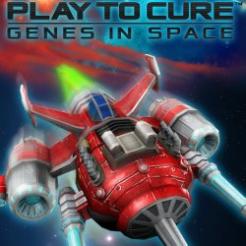Cancer Research UK has unveiled a smartphone game that it hopes will speed up the analysis of gene data, necessary in research into cancer cures, as people play it.
Play to Cure: Genes in Space is free to download on the Android and Apple phones.
Hannah Keartland, citizen science lead for Cancer Research UK (CRUK), said: “Our scientists’ research produces colossal amounts of data, some of which can only be analysed by the human eye – a process which can take years. We hope thousands of people worldwide will play Play to Cure: Genes in Space as often as possible, to help our researchers get through this data.”
In the game, players chart a course and then navigate through space collecting ‘Element Alpha', where they gather data information about gene data, which is then fed back to the scientists. There are about 50 levels and as users progress it becomes more difficult.
Professor Carlos Caldos, senior group leader at the Cancer Resarch UK Cambridge Institute, explained that computers could not analyse the peaks and troughs in gene data as accurately as the human eye can. He said: “Future cancer patients will be treated in a more targeted way based on their tumour’s genetic fingerprint and our team is working hard to understand why some drugs work and others won’t. But no device can do this reliably and it would take a long time to do the job manually.”
Ed Aspel, head of strategic marketing planning and citizen science, added: “What we need is for as many players as possible to play to generate accurate data.”
The same set of data will be played several times by different people to ensure that the data the charity receives is accurate – so people don’t need to be concerned about playing ‘badly’.
Initially the game is using gene data gathered from 2,000 breast cancer patients in 2012, but if successful other types of cancer data could be analysed through the game.
CRUK held a Game Jam in March of last year to brainstorm ideas for a game using its data. This produced 12 prototypes and the charity selected one to develop into the game and appointed developers Guerrilla Tea in July 2013.
It is the second crowdsourcing project that CRUK has developed in partnership with the Citizen Science Alliance, a group of organisations that is that aim to increase public participation in science.
Cell Slider launched in October 2012 and is a website that asks members of the public to compare different tumour samples. Early results of the Cell Slider project suggested that the time it took to analyse data was reduced by up to 18 months.









